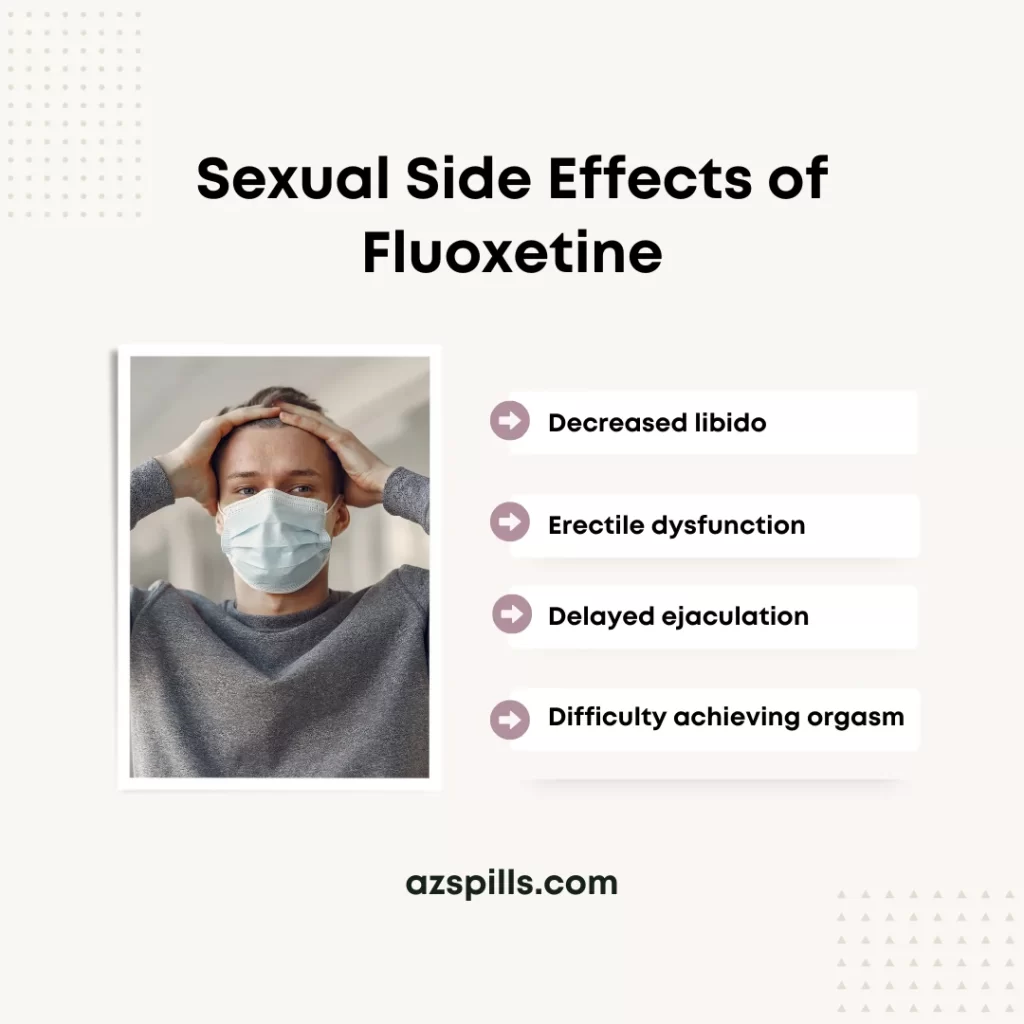Fluoxetine (brand name Prozac) is a popular medication used to treat depression, anxiety disorders, and other mental health conditions. While it is generally well-tolerated, like any medication, it can come with side effects. One of the most common side effects of fluoxetine is sexual dysfunction. In this article, we’ll explore the sexual side effects of fluoxetine in depth, including what they are, how they occur, and what can be done to manage them.
What are the sexual side effects of fluoxetine?
The sexual side effects of fluoxetine can include:
- Decreased libido: Fluoxetine can reduce sexual desire or interest in sex.
- Erectile dysfunction: In men, fluoxetine can cause difficulty achieving or maintaining an erection.
- Delayed ejaculation: Fluoxetine can delay or prevent ejaculation in both men and women.
- Difficulty achieving orgasm: Fluoxetine can make it harder to achieve orgasm, or prevent it altogether.
These side effects can be particularly distressing for some patients and may affect their quality of life and relationships. It’s important to note that not everyone will experience these side effects, and some patients may experience different side effects not listed here.

How do sexual side effects of fluoxetine occur?
The exact mechanism behind why fluoxetine can cause sexual side effects isn’t fully understood. However, it is thought that the medication may affect the levels of serotonin, a neurotransmitter that regulates mood, in the brain. This can impact sexual desire, arousal, and orgasm.
Additionally, fluoxetine can affect other neurotransmitters and hormones that are involved in sexual function, such as dopamine, norepinephrine, and testosterone. These effects can vary depending on the individual and their specific symptoms.
Managing sexual side effects of fluoxetine
If you are experiencing sexual side effects while taking fluoxetine, there are several strategies that can help manage them, including:
- Adjusting the dosage: In some cases, lowering the dosage of fluoxetine may help to reduce sexual side effects. However, it’s important to work closely with a healthcare provider to determine the appropriate dosage based on your individual needs.
- Switching medications: If sexual side effects are severe or impacting your quality of life, your healthcare provider may recommend switching to a different medication that is less likely to cause sexual dysfunction. However, it’s important to weigh the benefits and risks of any medication changes, and to discuss them with your healthcare provider.
- Adding augmentation therapy: In some cases, adding a medication or supplement to fluoxetine treatment can help to alleviate sexual side effects. For example, some patients may benefit from adding bupropion or a testosterone supplement to their treatment plan.
- Non-medication strategies: In addition to medication changes, there are non-medication strategies that can help manage sexual side effects, such as engaging in regular exercise, reducing stress, and practicing mindfulness and relaxation techniques.
It’s important to talk to your healthcare provider about any concerns you have regarding sexual side effects and to work together to find a treatment plan that works best for you.
Conclusion
Fluoxetine is a medication commonly used to treat depression, anxiety disorders, and other mental health conditions. While it is generally well-tolerated, it can come with sexual side effects that can be distressing for some patients. It’s important to talk to your healthcare provider about any concerns you have and to work together to find a treatment plan that works best for you. By understanding the risks and benefits of fluoxetine treatment, you can make informed decisions about your mental health and well-being.